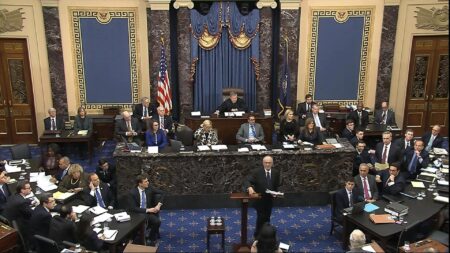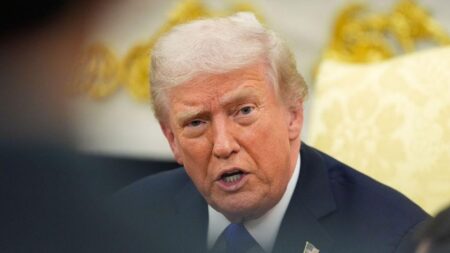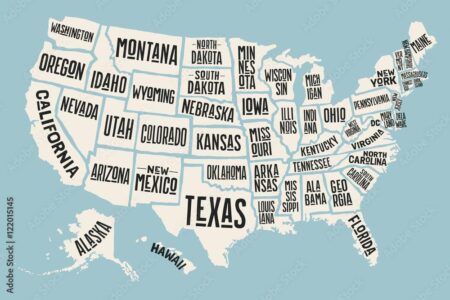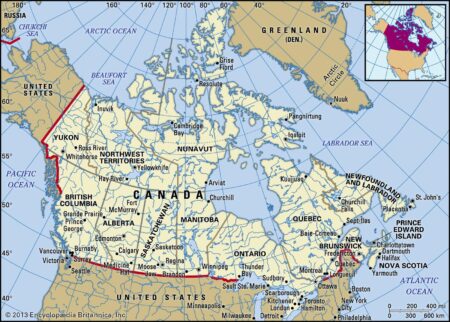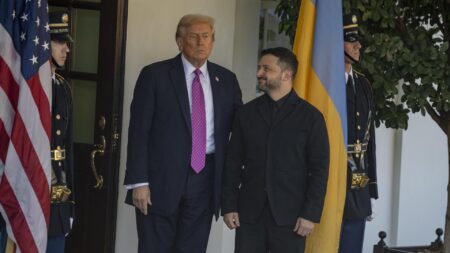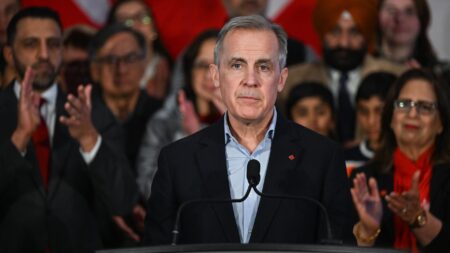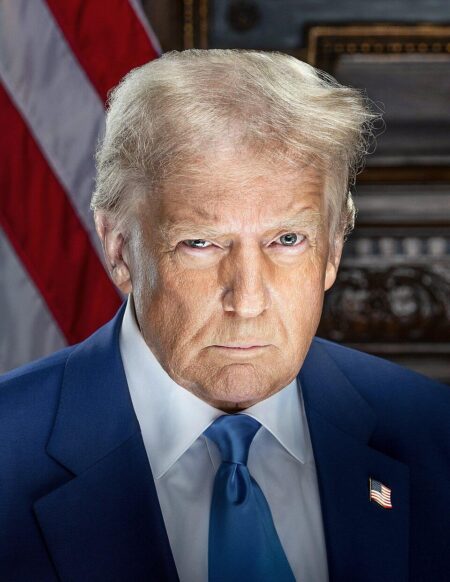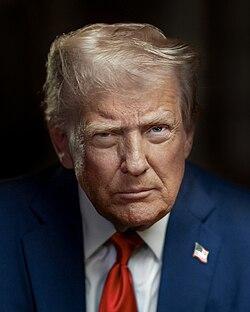The Senate has come together once again, standing strong to block former President Trump’s tariffs on Canadian goods. This powerful bipartisan move highlights a shared commitment to protecting U.S.-Canada ties and safeguarding crucial industries from harmful trade barriers
Browsing: trade
In a surprising turn of events, President Trump has sharply increased tariffs on Canadian goods following a provocative ad by Ron Reagan. According to the BBC, this bold move escalates the already fierce trade tensions between the US and Canada
Brazil’s soybean exports soared to unprecedented levels in early 2024, solidifying its position as a global agricultural titan. A surge in demand from China, paired with perfect weather conditions, propelled shipments to record-breaking heights-igniting a booming harvest season and boosting the nation’s trade balance like never before
In Japan and South Korea, President Trump is preparing to unveil bold new investments aimed at strengthening economic ties. However, key details about the size and focus of these initiatives remain unclear, reports AP News
America’s bold strategy to revive Argentina’s economy faces daunting challenges, from persistent inflation to overwhelming debt. The Financial Times explores the risks and profound implications of this high-stakes venture
Canada is aiming high with an exciting goal: to double its non-US exports within the next decade, Prime Minister Carney announced. This bold plan focuses on forging new trade partnerships across the globe to drive economic growth and reduce reliance on the US market
President Trump called on Argentina to ramp up its beef exports, aiming to ease soaring global prices amid rising inflation. Officials believe this bold move could help address supply shortages and restore much-needed stability to the markets
GOP Sen. sounds the alarm: Trump’s plan to import beef from Argentina could deal a heavy blow to U.S. ranchers by undercutting homegrown producers. This move raises serious concerns about the future of American farmers and the local beef industry
China’s economic growth has stumbled dramatically, weighed down by soaring tariffs and a deepening slump in the property market. This slowdown highlights growing challenges for the world’s second-largest economy, the Los Angeles Times reports
Argentina’s beef industry finds itself in the eye of a storm as former President Trump’s latest bailout plan sparks intense controversy. Critics argue that this daring strategy could disrupt markets and threaten the delicate balance of global trade
Former Bank of Canada Governor Mark Carney is spearheading a bold effort to rejuvenate Canada-China relations, advocating for a diplomatic reset that could unlock exciting new economic opportunities and deepen cooperation-just as geopolitical tensions escalate, The Globe and Mail reports
Germany’s top diplomat is preparing for a crucial visit to TĂĽrkiye, aiming to strengthen bonds focused on trade and security. This journey underscores the growing partnership as both countries tackle regional challenges together, TRT World reports
Americans have long been passionate about shrimp, with much of it traditionally coming from India. However, shifting trade policies and evolving supply chains are transforming where the U.S. sources its seafood, creating fresh challenges and exciting opportunities for the shrimp industry
Former President Donald Trump has announced a daring move to impose a staggering 100% tariff on all Chinese imports, ramping up the trade battle between the U.S. and China, NBC News reports. This bold strategy aims to directly confront trade imbalances and protect American industries from overseas rivals
Opinion | Four pivotal moments have driven China’s extraordinary economic surge, from revolutionary market reforms to its smooth entry into the global trade arena. South China Morning Post explores how a twist of fate played a crucial role in powering this incredible transformation
Brazil’s beef exports to China skyrocketed by 38% in September, driven by US tariffs that have made American meat less competitive, Reuters reports. This dramatic surge highlights the shifting dynamics of global trade amid ongoing US-China tensions
Australia’s Prime Minister has raised alarm over reports that China has stopped buying BHP iron ore, signaling potential disruptions in trade ties and sending shockwaves through the commodity markets, Reuters reveals
Farmers in Argentina are raising their voices against former President Trump’s proposed bailout, claiming it heavily favors big corporations and leaves small-scale producers out in the cold. They caution that this plan threatens local agriculture and could destabilize the region’s economy
Under Trump, the US watched its grip on China’s booming beef market slip away, as Australia boldly claimed a larger share of the pie. Trade tensions and tariffs hit US exports hard, clearing the path for Australian beef to dominate, Reuters reports
Facing rising trade tensions under the Trump administration, Canada is now looking to Mexico to build stronger economic ties. This bold move seeks to sidestep U.S. uncertainties and create an unprecedented level of stability in North American trade

